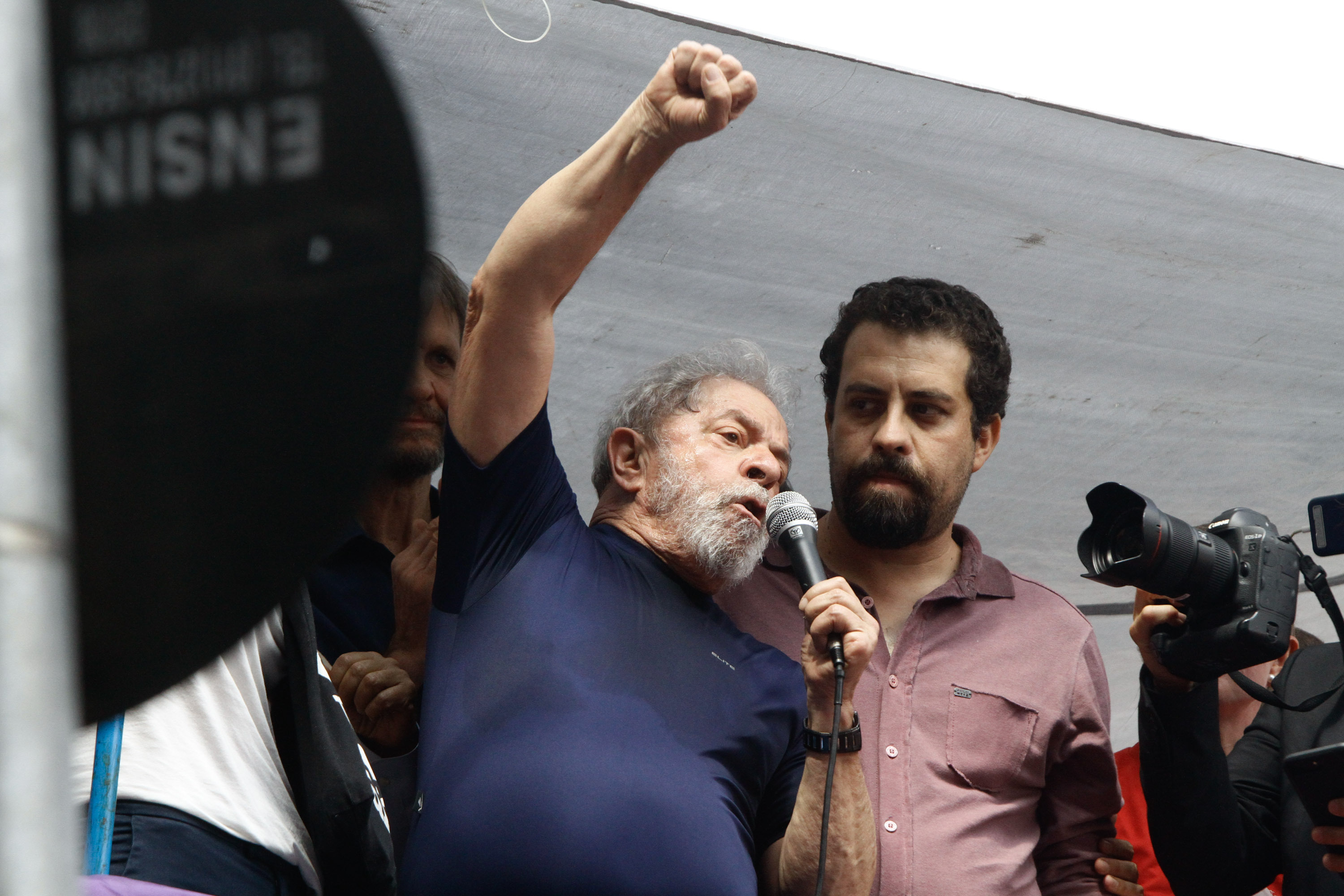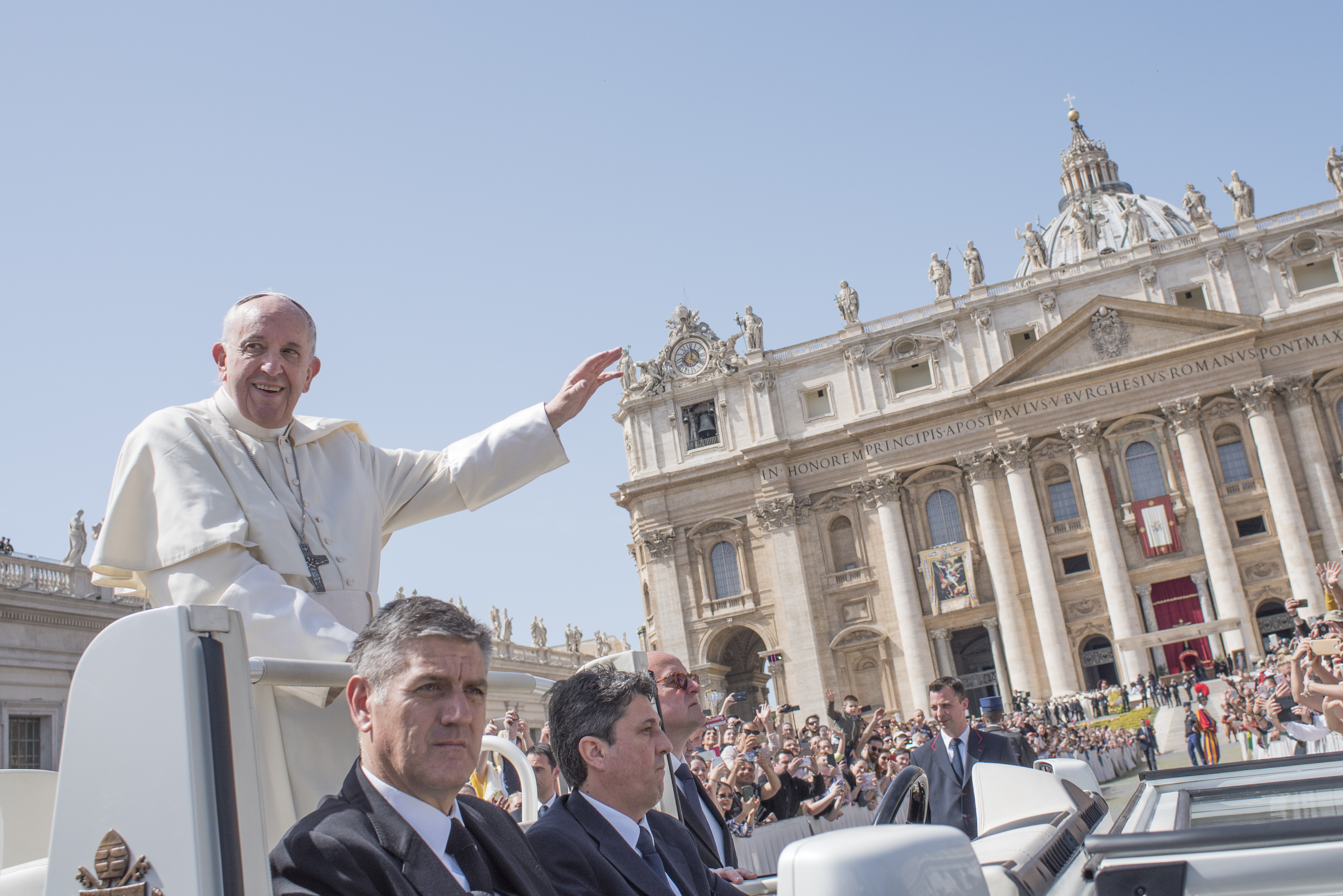Pope Francis says the path to holiness consists in daily acts of charity, joy and a sense of humour while warning Catholics against ideologies that suggest God’s grace is controlled by doctrine.
In a new apostolic exhortation, “Gaudete et Exsultate” – Rejoice and be Glad – released on Monday, Francis calls on Catholics to follow Jesus’ beatitudes through serving the marginalised, the poor and migrants, while offering an unequivocal defence of the child in the womb.
“Our defence of the innocent unborn needs to be clear, firm and passionate, for at stake is the dignity of a human life, which is always sacred and demands love for each person, regardless of his or her stage of development,” he writes. “Equally sacred, however, are the lives of the poor, those already born, the destitute, the abandoned and the underprivileged, the vulnerable infirm and elderly exposed to covert euthanasia, the victims of human trafficking, new forms of slavery, and every form of rejection.”
In the exhortation Francis criticises those who describe the plight of migrants as a “secondary issue” compared to “grave bioethical issues”, saying they have adopted an attitude akin to a “politician looking for votes”. The attitude of a Christian, the Pope explains, is “to stand in the shoes of those brothers and sisters of ours who risk their lives to offer a future to their children.”
The exhortation urges each Catholic not to try and copy the saints but to discover their own path to holiness, safe in the knowledge that those who have gone before them are carrying them forward.
The document was presented to reporters at the Vatican on Monday, by Archbishop Angelo De Donatis, the Vicar-General of the Diocese of Rome; Gianni Valente, a journalist for La Stampa and Paola Bignardi, of Catholic Action.
Archbishop De Donatis told the packed press hall that Francis had written the document “to show where the Church is going, where we are going” and that beyond internal debates and discussions sets out "the goal of the Church” today. And he warns them to avoid falling prey to schools of thought which present Christian faith as “cold ideology with an answer for everything, or as disembodied spirituality.
For Francis, sanctity is discovered through daily life which he describes as the “middle class of holiness”. Husbands and wives become holy by caring for each other, as do parents sacrificing time to listen to their child and employees acting with integrity.
“Holiness, then, is not about swooning in mystic rapture,” the Pope explains in the document about finding sanctity in today’s world. “I like to contemplate the holiness present in the patience of God’s people: in those parents who raise their children with immense love, in those men and women who work hard to support their families, in the sick, in elderly religious who never lose their smile.”
To be holy, the Pope writes, it is important to avoid two contemporary versions of old heresies: Pelagianism, a belief that God’s grace is attained through our own effort, and Gnosticism, where special knowledge makes people “judge others based on their ability to understand certain doctrines”.
In “Gaudete et Exsultate” the Pope issues a blistering critique of both ways of thinking, which some will read as a riposte to his critics inside the Church, many of whom have accused him of watering down doctrine or playing fast and loose with Church rules.
Francis points to an “often overlooked teaching” that God’s grace is not something that can be earned by human initiative and that it transforms people over time. To think otherwise, he explains, is a form of Pelagianism. “Some Christians insist on taking another path, that of justification by their own efforts, the worship of human will and their own abilities,” the Pope writes. “This finds expression in a variety of apparently unconnected ways of thinking and acting: an obsession with the law, an absorption with social and political advantages, a punctilious concern for the Church’s liturgy, doctrine and prestige, a vanity about the ability to manage practical matters, and an excessive concern with programmes of self-help and personal fulfilment.”
These new Pelagians, the Pope says, believe that grace is attained by their own efforts which is a denial of Church teaching that God’s grace is unmerited by human action and which transforms people over time. Francis then criticises the modern-day Gnostics who absolutise their own theories thinking that “their explanations” can make the entirety of the faith and the Gospel perfectly comprehensible” and therefore reducing Jesus’ teaching to “cold, harsh logic”.
He writes: “Someone who wants everything to be clear and sure presumes to control God’s transcendence.” Francis also urges people to reject hedonism and consumerism, and to develop a prayer life. But he says it is not “healthy to love silence while fleeing interaction with others” and to seek out prayer while “disdaining service”. This is the third apostolic exhortation delivered by Francis and follows “Evangelii Gaudium” (“The Joy of the Gospel”), the programmatic text of his papacy, and “Amoris Laetitia” (“The Joy of Love”), which is focussed on the family.
Pope Francis also makes some pointed remarks about the media.
Comment on this story on Facebook and Twitter.
Pic: Pope Francis leaves St. Peter's Square at the Vatican after a Mass on the Sunday of Divine Mercy, Sunday, April 8, 2018. (Photo by Massimo Valicchia/NurPhoto/Sipa USA/PA)



 Loading ...
Loading ...